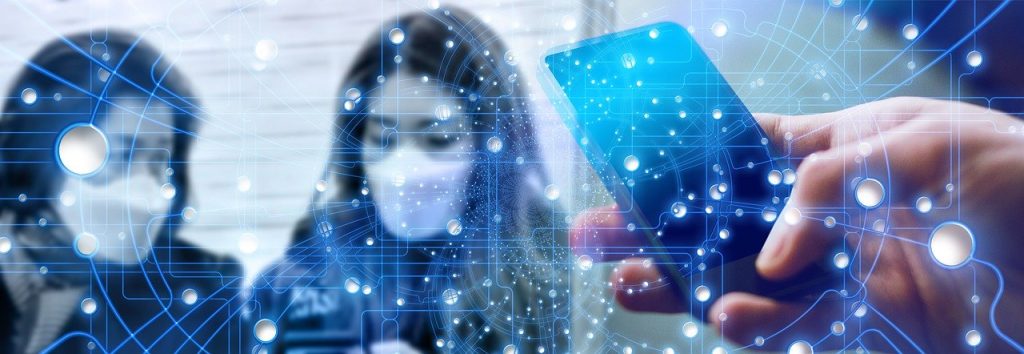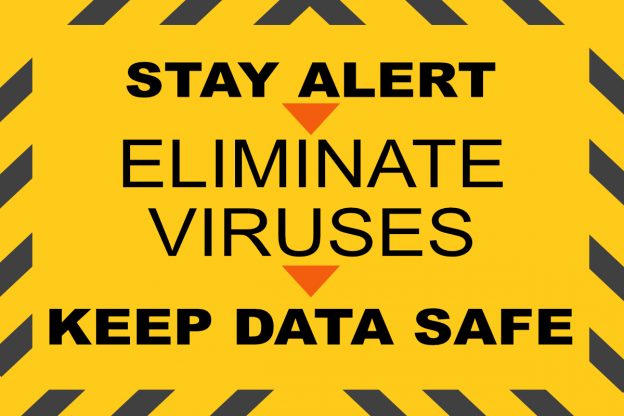As computer viruses have may similar characteristics to real-world viruses, I thought it would be interesting to see how we can apply the lessons from the pandemic to computer systems.
Hacking and malware flourish during the pandemic
But first, here’s some of the recent activities of the bad guys – it never lets up. That one big difference – we have great expectations that a vaccine will be developed and we will eradicate Coronavirus. Unfortunately, that won’t happen with computer hacks and viruses – there is a whole industry of people continuously creating new ways of attacking our computers and stealing our data. So be alert – always.
- Sky News reports that we have collectively lost £4.6m to coronavirus related scams since the lockdown. According to Sky “More than 2,000 victims lost cash through fake online goods sales, bogus cold-calls, non-existent pension plans and other frauds. Another 11,206 people claim to have been victims of email (phishing) and text (smishing) attempts to trick them into giving out personal details”. Our article “Gone Phishing” has more on this.
- At least 10 UK universities and charities including Chichester and Sheffield Hallum Universities and The National Trust suffered a data breach through their CRM provider, Blackbaud. In July, a bad actor staged a ransomware attack against this global cloud provider of CRM systems to Universities and non-profits. Although the ransomware itself was blocked, the bad guys downloaded the names and contact details of alumni, donors and other stakeholders.
- Garmen, the sat nav company, fell victim to a ransomware attack, also in July, that knocked out its automotive, marine, personal and aviation GPS navigation systems as well as it call centre. The attack was perpetrated by a Russian criminal gang called Evil Corp (yes, really) using their ransomware attack kit, Wasted Locker.
- A well known Russian hacking firm, APT29, has been accused by the British and US cyber security agencies of theft of Covid 19 vaccine research
- The National Cyber Security Agency has warned us the UK can expect reprisal attacks from the China in response to banning Huawei from our 5G networks; and finally
- The adoption of AI and commoditised attack tools make it even easier to “economically” attack a wider range of targets, meaning more of us are at risk, more often.
Keep your distance, wash your hands, wear a mask
Now that we have all learnt (or at least most of us have) how to protect ourselves from the real-world virus, how can we apply the learnings to computer viruses – they are not called viruses for nothing.
Just three things – so it can’t be that difficult can it?

- Keep your distance. Current evidence suggests that Coronavirus is spread through touching contaminated objects and surfaces or close contact with infected persons via their droplets. Computer viruses are similarly spread by contact with infected devices or software. Almost anything your computer comes in contact with (DVDs, memory sticks, email and its attachments, websites etc) can be infected. So be very careful what your computer comes into contact with and the devices you connect to it.
- Wash Your Hands is the way to clean off any virus residue you may have picked up. The equivalent for computers is a security software scan. Security software continuously checks everything entering the computer for new virus patterns and malware. Just as real-world viruses keep mutating, new versions of computer viruses or malware are released every day. Hence the need to ensure your security software is continuously updated.
- Wear a Mask. A mask is intended to prevent the virus entering or leaving your body through your nose or mouth. In the IT world, a firewall provides a similar function to a mask – its intent is to block harmful traffic entering your computer. Firewalls can be “personal” and protect individual computers of protect your “perimeter”- all your office computers for example.
Is it the ICU for you?
If you are unfortunate enough to be infected with Covid 19, the prognosis can be pretty bad for some people, leading to a stay in hospital, in ICU or even death. Us humans regretfully don’t have a reset button or the ability to reload our memory and cognitive functions – but how useful would that be. Your computers do – if you have the foresight to use the facilities. If your computer suffers a ransomware attack, one of the few ways to recover is to restore information from a backup. You can back up both files and operating systems and even spin up a virtualized new system in the cloud in minutes. The choice of backup depends on how costly downtime is for your business and how quickly you need to be up and running again.
Be prepared
Even the boy scouts know this lesson: be prepared. We’ve seen how Governments across the world did not heed the warning of their public health officials or follow their own pandemic plans to maintain a stock of PPE and ventilators. When emergency kit was needed, it wasn’t there and so many people bore the pain due to lack of protection. In the world of IT are you prepared? Have you sorted out backup and recovery arrangements for your key systems? Do you have a disaster or incident response plan?
“Be prepared” applies to us as a service provider as well as our clients. We have recently re-visited our cyber incident response plan, beefed up our firewall defences and reviewed our access controls. Setting defences is not a one off activity, but requires constant review, particularly after a change.

Ive found more parallels between the real world pandemic and computer viruses than when I first thought about this article. So I hope you’ve found it interesting.
We can’t help you with the real world virus, but we can help ensure your computer systems are in good order to weather the storm. So learn the lessons from the pandemic and be more prepared than we’ve been in the real world!
If you would like to learn more about keeping your systems healthy:
- Make an appointment to talk, by clicking this link;
- Call us on 01428 770 290
- Fill out a contact form here,
- Looks at our pages on cyber security and backup and recovery.
We do hope you, your staff and family are all keeping safe and sound during this pandemic.

